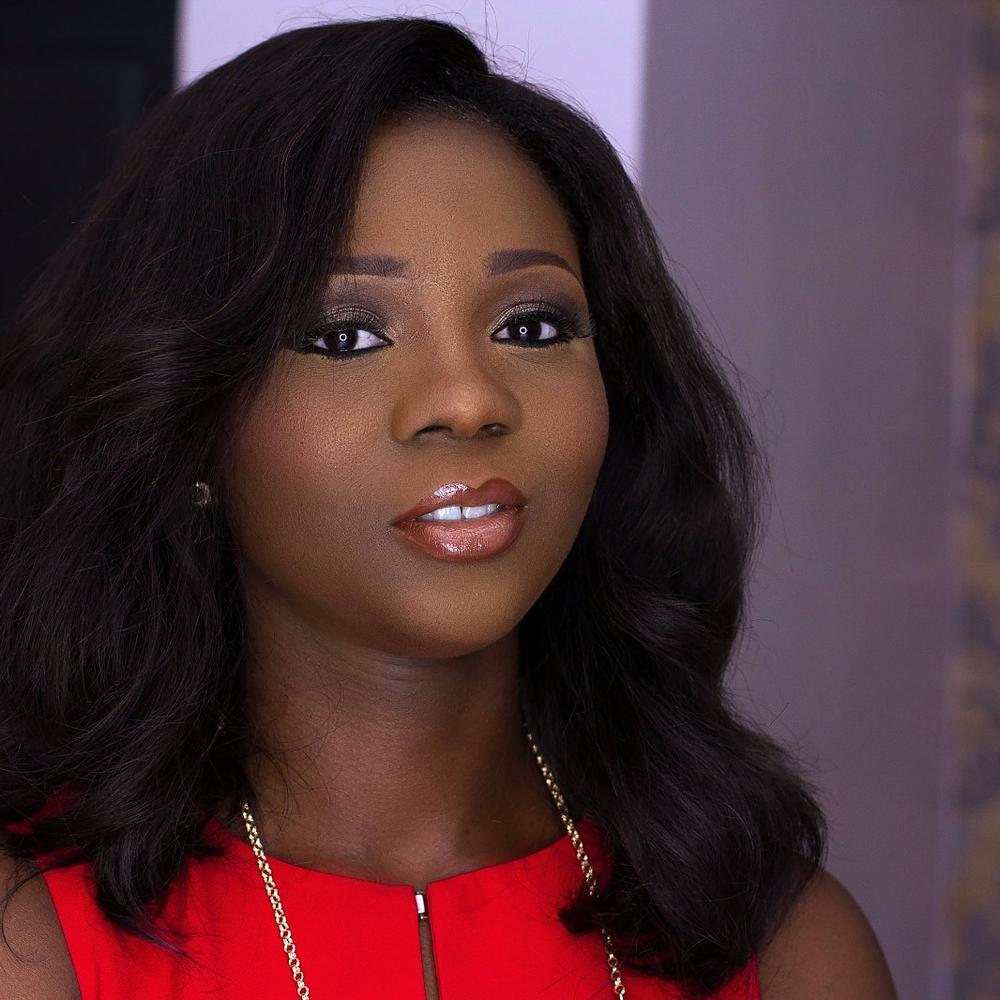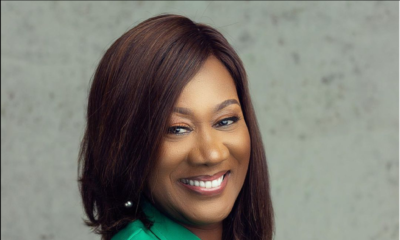Career
Tomie Balogun: Are You Actually Pre-Rich or Simply Pre-Broke?
In my opinion, a person who is pre-rich is someone who actively spends in a way that creates streams of income for present obligations today and sustainable wealth in the future. (We will stick with this definition for the rest of this article). Research shows that working towards a form or level of financial independence is what makes you pre-rich. Your path to financial independence starts with making investment a bill and creating an investment plan.
***
Finding a balance is important, so don’t spend all your money investing, only to spend it on getting back in shape or treating yourself in the hospital because you didn’t nurture your well-being.
 I had brunch with a friend recently, and we got talking about money and investing. Our discussion got interesting when she shared her latest escapades, and I told her she had to watch her spending habits. She laughed at my advice and told me, “Don’t worry, Tomie, I’m not broke. I’m just pre-rich.” I laughed out loud and asked, “What does that even mean?”
I had brunch with a friend recently, and we got talking about money and investing. Our discussion got interesting when she shared her latest escapades, and I told her she had to watch her spending habits. She laughed at my advice and told me, “Don’t worry, Tomie, I’m not broke. I’m just pre-rich.” I laughed out loud and asked, “What does that even mean?”
Curious about what being pre-rich means, I looked up the definition. The urban dictionary defines someone who is pre-rich as a person who is broke but really thinks they are on their way to getting rich because they are delusional. Ouch! right?
Well, let’s look on the bright side. If you’ve been defining your present circumstance as pre-rich, this is a great opportunity to ask the right questions. Am I broke and just deceiving myself by thinking I’m pre-rich, or will things work out fine for me eventually?
According to the dictionary, here’s what being broke means: A broke person is a person who has absolutely no money. But most times, people use the word colloquially (i.e. as a slang) to exaggerate their current circumstances. A person might say they are broke just to exaggerate that they have only a little money to survive and need more money urgently.
If having absolutely no money is not your current circumstance, you can breathe a sigh of relief. You’re not broke. However, you’re not off the hook yet. I had a question for my friend, and it’s a question you should consider as well; Are you actually pre-rich, or simply pre-broke?
As a financial educator, I work with a lot of 9 to 5 professionals and entrepreneurs who earn good income to meet their daily expenses and obligations. They work hard to do well at work and build successful businesses. However, most times, they ignore the risk factors that stare them in the face.
As a recovering professional myself, I always thought all I needed was a great job with a great salary. In essence, I thought if I needed more income, all I had to do was look for another job, right? Then the unthinkable happened to me (i.e. I quit my job) and reality stared me in the face after a couple of months; I was pre-broke.
The honest truth is I knew I was supposed to save and implement all the personal finance principles we hear so often: save 10% of your income, build up emergency funds, build a diversified portfolio, etc. I’m sure 90% of those reading this have heard these principles at a conference, seminar, read it in a book somewhere before. These are solid principles, don’t get me wrong and you can probably teach a financial literacy masterclass (pun intended).
You’ll agree that knowing the right thing to do, and actually doing the right thing, are two very different things.. Yes, it took me a while to realize this, but I finally did. I needed to build a new set of habits to bridge the gap between knowing what to do and actually doing what I knew to do. So, how can you actually be on a journey to becoming rich (i.e. the freedom to make flexible life decisions) without being simply delusional? In my opinion, a person who is pre-rich is someone who actively spends in a way that creates streams of income for present obligations today and sustainable wealth in the future. (We will stick with this definition for the rest of this article). Research shows that working towards a form or level of financial independence is what makes you pre-rich. Your path to financial independence starts with making investment a bill and creating an investment plan.
How do you make investment a bill? You make investment a bill by including it in your budget on a regular basis. When you make investment a bill, investing stops being an activity where you only keep funds in a savings account where it might end up losing value to inflation over time. Investing becomes a spending activity you embark on to earn an additional stream of income or improve your chances of earning more income.
Here are some ways you should consider spending smartly to become pre-rich and increase your chances of eventually becoming rich.
Spend to improve you potential to earn
Not what you expected? Well, your ability to earn will always grow parallel to your knowledge and capacity. If you’re at an early stage of your career, this is the time to spend toward increasing your potential to earn more income in the workplace. You might need to write some professional exams to get certifications or invest in an MBA program, your choice.
Always remember, the most important investment you can make is investing in yourself, focusing on improving your ability to solve big problems and provide solutions in the marketplace. This will help you to keep evolving and stay relevant in the marketplace. I decided to enrol for my MBA a couple of years ago, when it became clear I wasn’t learning anything new at work. I had a choice. It was either I keep hoping to be promoted to the next level, or increase my odds of getting into management. I decided on the latter, and it increased my knowledge and income significantly.
If you’re an entrepreneur, you can spend to improve your business’s (staff or products) ability to provide more value in the marketplace and earn more revenue. Money flows toward value, so you’ll be better off continuously focused on creating value for your clients/customers in the marketplace. Attend the right events, employ qualified employees, break into blue ocean, etc.
Spend to earn more income
This is how you put your money to work. Today, investing is not a choice; it is necessary if you don’t want to spend the rest of your life working to earn an income. One of the key insights I have gained as an investor over time is: if my income is limited to the number of hours I work every day, then my income will always be limited by time. We can only work for a maximum of 24 hours a day, seven days a week (and even that is impossible), or we’ll work ourselves to death.
Investing is a great way to put your money to work so you don’t have to keep working to earn a salary for the rest of your life. Some of the ways you can invest for income is to invest in the money market to earn interest upfront, or earn interest from crowdfunding opportunities or working capital loans to small businesses. When you invest for income, you earn additional income to cover your expenses or add to your investment portfolio. Quick tip: It is important you live off your interest earned on investment rather than your capital or income.
Spend to buy up assets that earn you cash flow
Income producing assets create cashflow, or an opportunity to earn capital gains when your asset appreciates in value. This is an additional step to investing, because it provides the multiplier effect you need for your investment portfolio. Your investment portfolio will keep growing in direct proportion to the performance of your assets. If you invest in assets that earn you cash flow, you can keep re-investing your returns to grow your investment portfolio.
Some great example of assets that earn you cash flow include real estate and the stock market. With these two investment options, you can earn capital gains (when the value of the stock or real estate appreciates) or income (rental income for real estate and dividend for the stock market)
Finally, spend to improve your sense of wellbeing
As a millennial, I believe in living in the moment as I create the future I want. Your sense of wellbeing is important on your investment journey; the relationships you build, your health, peace of mind and sense of wonder are all very important on your financial journey. Finding a balance is important, so don’t spend all your money investing, only to spend it on getting back in shape or treating yourself in the hospital because you didn’t nurture your well-being.
Spend time with people who inspire and nudge you to grow. Eat healthy, exercise, do your annual health checks and don’t take it for granted. Spend time meditating and plan to see a lot more of the world than you can see from your corner street.
Becoming rich or creating wealth is not simply saving money for a rainy day. That’s not how an abundant mind works. Taking the right steps on your financial journey has everything to do with how you think and take advantage of opportunities. It also has everything to do with how you define yourself and work toward the life you really want to live.
Like I told my friend, there’s no crime in thinking you are pre-rich, as long as you have a deliberate life and investment plan. When you think right, you act right.
On a final note, if you don’t have a plan to spend like I have outlined above, then I must agree with the urban dictionary, you’re simply being delusional. Those are the urban dictionary’s words, not mine, so don’t come for me. I hope you take the steps required to achieve your dreams, and not simply hope and pray. Hope is not a strategy. A plan is.





















